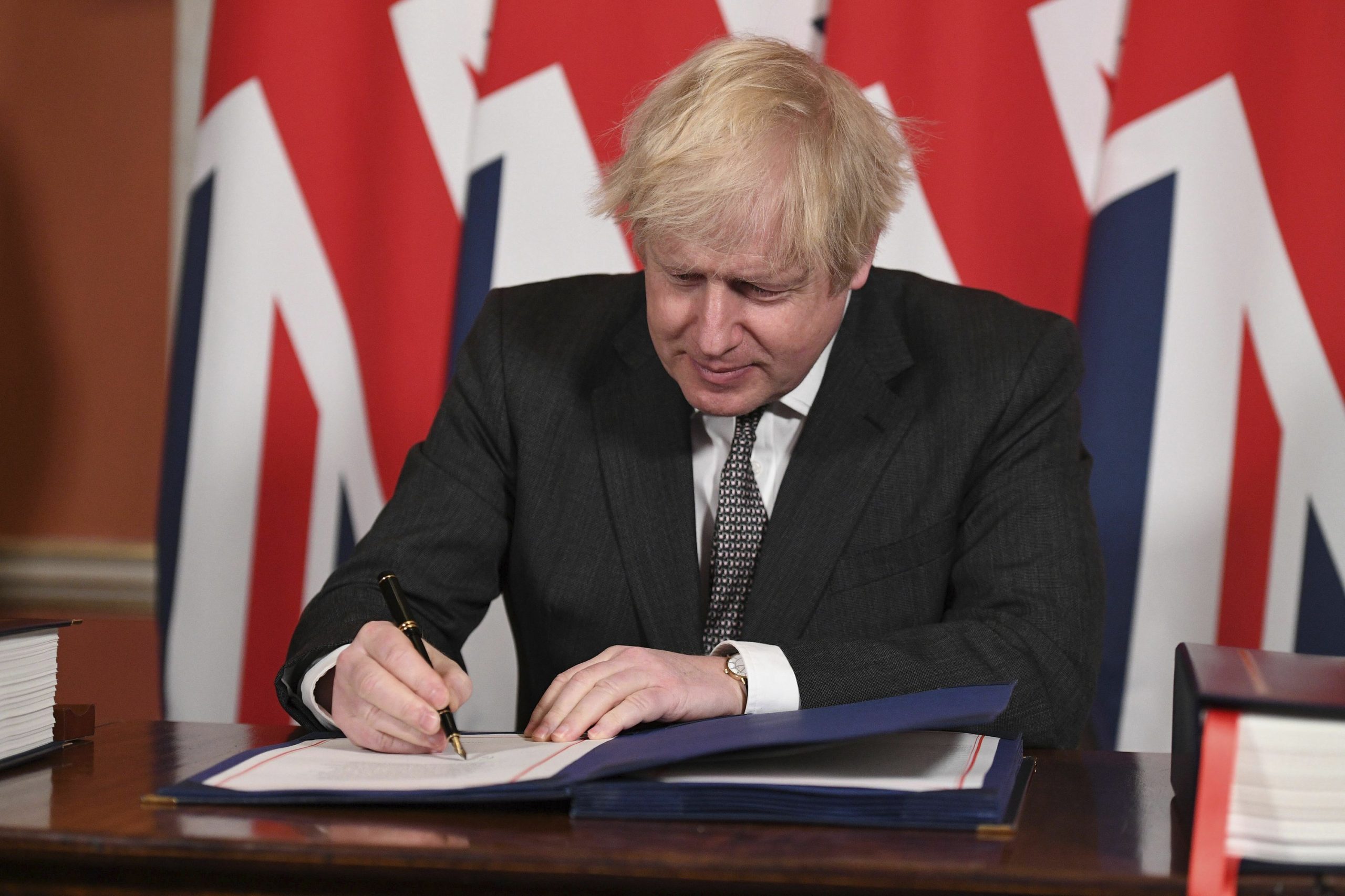London (AFP) – Like an estranged couple who still live together, Britain and the European Union have spent 2020 arguing and questioning whether they can remain friends.
On Thursday, the UK is finally moving. At 11 pm London time – midnight at the European Union headquarters in Brussels – Britain will economically and practically leave the 27-nation bloc, 11 months after its official political departure.
After more than four years of political drama about Brexit, the day itself is kind of a meltdown. The lockdown measures in the UK to curb the Coronavirus have reduced mass gatherings to celebrate or mourn the moment, although the huge Big Ben clock bell in Parliament will ring the clock as it prepares to ring in the new year.
British Prime Minister Boris Johnson – for whom Thursday represents the fulfillment of his promise to “end Britain’s exit from the European Union” – said today “marks a new beginning in our country’s history and a new relationship with the European Union as their biggest ally.”
After the British Parliament approved the trade agreement between the United Kingdom and the European Union overnight, “This moment has finally arrived and now is the time to seize it,” he said, the last official hurdle on the British side before leaving.
It has been 4 and a half years since Britain voted in a referendum to leave the bloc, which it joined in 1973. The United Kingdom left the political structures of the European Union on January 31, 2020, but the repercussions of this decision have not yet emerged, since the UK’s economic relationship with the bloc has remained Unchanged during the 11-month transition period ending Thursday.
After that, Britain will leave the vast single market for the European Union and the Customs Union – the largest single economic change the country has seen since World War II.
The free trade deal struck on Christmas Eve after months of tense negotiations will ensure that Britain and the 27-nation European Union continue to trade in goods without tariffs or quotas. That should help protect the £ 660 billion ($ 894 billion) in annual trade between the two sides, and the hundreds of thousands of jobs that depend on it.
But companies face bundles of new paperwork and expenses. Traders are struggling to grasp the new rules imposed by a 1,200-page deal agreed just a week before the changes took place.
The English port of Dover and the Eurotunnel passenger and freight route are preparing for delays, although the pandemic and the weekend mean traffic through the canals will be lower than normal. The vital supply route was bogged down for days after France closed its borders to UK truck drivers for 48 hours last week in response to a rapidly spreading type of virus identified in England.
The British government has insisted that “the border systems and infrastructure we need are in place, and we are ready for the start of the new United Kingdom”.
But shipping companies are holding their breath. British transport company Young’s Transport suspended services to the European Union from Monday until January 11th to “let things settle”.
“We think it gives the country a week or so to get used to all these new systems in and out and we can take a look and hope to solve any problems in advance of actually sending our trucks,” said Young’s manager Rob Holleman.
The service sector, which makes up 80% of the British economy, does not even know what rules will apply to business with the European Union in 2021 – many details have yet to be worked out. Months and years of additional debate and debate over everything from fair competition to fish quotas await us like Britain A. The European Union settles into their new relationship as friends, neighbors and rivals.
Hundreds of millions of people in Britain and the Bloc are also facing changes In their daily life. After Thursday, British and European Union citizens lose the automatic right to live and work in each other’s territory. From now on they will have to follow immigration rules and obtain work visas. Tourists won’t need visas for short trips, but new problems – from travel insurance to pet papers – still loom large for Britons visiting the continent.
For some in Britain, including the prime minister, it is a moment of pride and a restoration of national independence from the huge Brussels bureaucracy.
Conservative lawmaker Bill Cash, who has championed Brexit for decades, said it was “a victory for democracy and sovereignty”.
For others, it is a time of loss.
Roger Liddell, a member of the opposition Labor Party in the House of Lords, said Brexit had cut Britain off “the most successful peace project in history”.
He said, “Today is a victory for toxic national populism over liberal rule-based internationalism. It is a very bad day, and very painful for me.”
French Minister for Europe Clement Boone echoed this sentiment.
“It’s going to be historic,” he told LCI. “It’s going to be sad.”
But we also have to look to the future. A number of lessons should be drawn from Brexit, starting with the lies, I believe, that were told to the British. And we will see that what he promised – a kind of complete freedom, no restrictions, and leverage – I think it will not happen. “
___
Contributed to this story is John Lister of Le Beek, France.
___
Follow all AP stories on Brexit at https://apnews.com/Brexit

“Appassionato pioniere della birra. Alcolico inguaribile. Geek del bacon. Drogato generale del web”.

